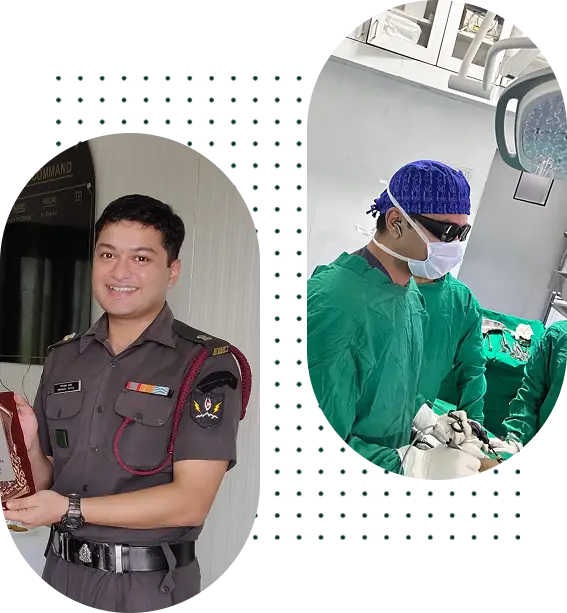Primary Peritoneal Cancer Doctor in Kolkata
When scans and symptoms point to something more serious, it could be more than a digestive issue. It could be primary peritoneal cancer (PPC).
Though rare, PPC demands sharp diagnosis and skilled hands. Dr. (Maj) Ranajoy Dutta, an experienced primary peritoneal surgeon in Kolkata, brings his surgical training and cancer care experience to patients seeking clarity and hope.
What is Primary Peritoneal Cancer?
It’s most commonly diagnosed in postmenopausal women and often shares the same symptoms, causes, and treatment options as ovarian cancer.

Primary Peritoneal Cancer Types

Serous Carcinoma
The most common type, similar to high-grade serous ovarian cancer, tends to be aggressive.

Endometrioid Carcinoma
It is a less common type, originating in the glandular cells of the peritoneum, and is similar to endometrial cancer.

Clear Cell Carcinoma
It is a rare and aggressive type, often resistant to chemotherapy.

Mucinous Carcinoma
It is a rare type which is characterized by mucus-producing cells, and more difficult to treat.

Undifferentiated Carcinoma
It is a type where the cancer cells are not well-differentiated, making it harder to identify and treat.
Primary Peritoneal Cancer Causes

Call for Appointments
Begin your treatment journey with expert care. Schedule your appointment with Kolkata’s esteemed cancer specialist Dr. (Maj) Ranajoy Dutta today.

Primary Peritoneal Cancer Symptoms
Unexplained weight loss or fatigue

Primary Peritoneal Cancer Diagnosis

Pelvic Ultrasound

CT Scan or MRI

Biopsy

CA-125 Blood Test
Primary Peritoneal Treatment in Kolkata
Primary peritoneal cancer surgery is the effective treatment for Primary Peritoneal cancer. Dr. (Maj) Ranajoy Dutta typically recommends a cytoreductive (debulking) surgery, which involves removing as much visible tumour as possible from the abdominal cavity.
In select cases, HIPEC (Heated Intraperitoneal Chemotherapy) may be administered during surgery to target remaining cancer cells within the abdomen directly.
Following surgery, systemic chemotherapy is usually advised to treat microscopic disease and reduce recurrence. In advanced or recurrent cases, targeted therapy may also be considered, depending on genetic markers and tumour type.
Each Primary peritoneal treatment plan is highly individualised, based on the extent of disease, overall health, and patient goals. Dr. Dutta combines surgical precision with precise, compassionate guidance, so you understand your options at every step.
Fill The Form
Contact Form

Make Appointment &
Take Care Of Your
Healthy Life

